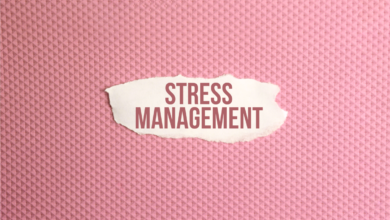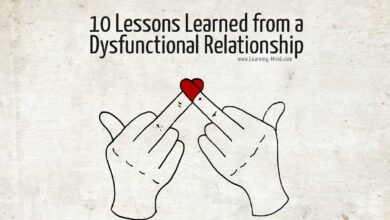
FOLIC ACID AND STRESS MANAGEMENT
Are you struggling hard to manage your stress? Do you feel like there is nothing that can help you get over the feeling? You cannot just run away from your family or career responsibilities; constantly procrastinating about day-to-day errands will add more to it.
But what’s the good news? There is help; you can easily manage stress. Managing stress will help you take charge of your emotions, jumbling thoughts, and it lets you deal with the problems effectively and efficiently. Talking about stress management, folates, commonly known as folic acids, can help in easing stress.
How Does Folic Acid Help In Stress Management?
Folates or folic acids are progressively making the news as we explore more about their importance for health. They are not just good for the prevention of birth defects but, folic acid is one of the effective tools for managing stress. Ahead, you will find out how folic acid actually helps in managing stress effectively.
Folic Acid And The Depression
According to the research, people having low blood levels of folic acids/folates are prone to depression and vice versa. This shows a strong correlation between the two. Folic acids rich in vitamin B are dietary components that are essential for life.
The deficiency of vitamin B leads to some psychiatric disorders. Thus, folic acid supplements can help people with depression. Nonetheless, the link between the two is complex.
Folic Acid For The Functioning Of The Brain
Folic acids play a vital role in the functioning of the brain, aka nervous system, because they are essential for the development of building blocks of genes and other vital components. Folic acids directly influence the production of neurotransmitters and other substances that convey signals to different parts of the brain.
For instance, lower levels of S-adenosylmethionine indicate the deficiency of folic acids. According to the study, low levels of folic acids are possibly one of the core reasons for lowering the level of S-adenosylmethionine in the brain that affects mood swings. Hence, prescribing folic acid to individuals with depression boosts the productions of S-adenosylmethionine that helps in eliminating the symptoms of depression.
Is Deficiency Of Folic Acid Really A Risk Factor?
One of the studies was carried out involving 15,315 people, and it found out that there exists a close association between folates and depression. Lower levels of folates are one of the risky factors that contribute to depression.
Not just that, deficiency of folic acids poses a threat of heart stroke, neural tube defect (in pregnant women) that affects the development of the baby’s brain.
Association Between Severe Depression &Folic Acid
A research study involving 127 people having severe depression was conducted to find the connection between folic acids and depression. Anti-depressants including fluoxetine along with the placebo or 400 micrograms of folic acidswere given to them for ten weeks. Results indicated a significant improvement in women, whereas men didn’t show such improvement. One of the possible reasons for that is; men might have needed a higher dose of folates or had low levels of folates.
The Link BetweenFolic Acid&Mild Depression
To identify the effect of folic acid on people with mild depression, researchers carried out an experiment involving 909 adults getting different treatments. One of the groups in the experiment was given vitamin B12 and folic acid whereas, the other took the placebo. According to the result, there wasn’t much difference; rather, vitamins weren’t any better than the effect of placebo in dropping the symptoms of stress/depression.
Depression Busting Foods
Vitamins are the core elements for building healthy DNA and other components of essential cells. Folic acids rich in vitamin B are suggested to add to your diet because they help in the proper functioning of your body.
You should include fortified cereals, avocados, spinach, and beans, etc., in the diet to lower the symptoms of anxiety.
Should We Resort To Folic AcidsFor Treating Depression?
Depression is real and can be deadly at times. Sticking solely to medicines won’t do much about it. Rathermedical treatments along with psychotherapy would do wonders. Making a switch towards folic acid as a part of depression treatment is increasingly making the headline.
You should always consult a doctor before making a switch. Introducing folic acids in your daily routine can be of great help because they are regarded as one of the best selective serotonin reuptake inhibitors.
Who Can And Can’t Take Folic Acid?
Folic acid is for almost all ages, but it is definitely not suitable for everyone. Be very clear about your medical condition and make sure it’s safe to use folic acid. Therefore, consult with your doctor if you have:
- Kidney problems.
- Stent in your heart.
- If you have had any past reaction to folates.
- Deficiency of b12 vitamins.
- Anemia.
How And When To Take Folic Acid?
If you or any of your family members have been prescribed folic acid then, you should strictly adhere to the instruction of the doctor.
Folic acids usually come in the form of both syrup and tablets; you can follow the instructions/steps that come along with the packaging.
Folic acids are taken with or without food but, you cannot chew them.
Side Effects Of Taking Folic Acid
Indeed allopathic medicines are very effective, but they come with both pros and cons.
What Are Some Of The Common Side Effects Of Folic Acids?
Folic acids usually do not cause any side effects, but sometimes people may experience minor effects. Consult with your doctor if any of these effects persist over time:
- Feeling gassy/Bloating.
- Nauseous (but it’s not worrisome if you are expecting)
- Loss in appetite.
What Serious Damage Can Folic Acid Cause?
Folic acid usually does not cause serious illness, but at times, it does lead to a serious allergic reaction known as anaphylaxis. Rush to your doctor if you experience any of the following:
- Difficulty in breathing.
- Chest tightness.
- Swelling in throat, face, or lips.
How To Reduce Side Effects Of Folic Acid?
There are certain precautionary measures that you can take to cure the side effects:
- Bloating/Gassy – Abdominal bloating or feeling gassy can be very disturbing at times. In this scenario, you should try splitting your big meal into smaller ones. Eating frequently in smaller portions and regular exercise can help you overcome these problems.
- Nauseous – If you are feeling nauseous, then try considering taking it with or right after the meal. However, it is also important to know that morning sickness is also common in pregnant women.
- Appetite Loss –You should try incorporating nutritious food in your diet that is rich in both proteins and calories, for example, nuts and seeds. Try to eat more frequently and in smaller portions.
The Takeaway
Indeed stress is worrisome, but it’s not something that you cannot manage. Talk to your doctor about folic acid because people with depression usually have low levels of folic acids. In that case, folic acid can be of great help to fight depression.
You should adhere to the right limit (400 mcg) of folic acids in your daily routine because excess of everything is bad.
Folate is certainly a good source of vitamin B that is vital for healthy genetic materials, but it still lacks a scientific notion of how it helps in improving the mental health of an individual.
Disclaimer:
Any information provided on this article or our website is for entertainment purposes only and researched from the internet. Please consult your local professional or physician before using any information provided.



